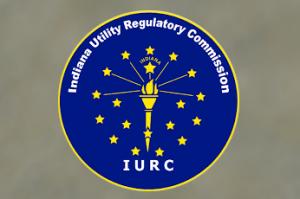Indiana OKs Transmission Developer as a Public Utility

To facilitate a regional transmission organization's (RTO's) plans for relieving congestion in the southern area of Indiana and the northern area of Kentucky, the Indiana Utility Regulatory Commission has recognized a transmission owner and developer as a public utility under state law. The developer, Republic Transmission, LLC, was the winning bidder in a solicitation process administered by the RTO, the Midcontinent Independent System Operator (MISO), to construct a new high-voltage transmission line going between the two states.
According to the testimony, MISO had identified a region in the southwestern portion of Indiana and the northwestern portion of Kentucky as requiring greater transmission capacity. The RTO subsequently instituted a bidding process for selecting a firm to build a 345-kilovolt, 28.5-mile-long transmission line running between the Duff substation in Indiana and the Coleman substation in Kentucky. The project marked the first time MISO had invoked the Federal Energy Regulatory Commission's (FERC's) Order 1000 in prosecuting a competitively bid transmission expansion facility.
The terminus of the line in Kentucky will be located near a Century Aluminum smelting plant, and as such will be important to the electric cooperative that serves the smelter, Big Rivers Electric Corporation. That fact notwithstanding, however, the Kentucky portion of the project will be but a small fraction of the line as a whole. Indiana will host a far larger segment.
That explains in part why Republic Transmission sought public utility status in Indiana. It asserted that because public utilities have the right to claim property by eminent domain, it was critical that it be certified as a public utility to be able to properly site the project and obtain all requisite property titles, easements, rights-of-way, and the like. At the same time, the transmission developer emphasized that it was not seeking to operate as a public utility in the conventional sense or offer retail electric service.
In determining that Republic Transmission should be authorized to operate as a public utility in Indiana as a new transmission owner, the commission stated that the developer had demonstrated compliance with all financial, managerial, and technical criteria for public utility status. Plus, the commission said, the project had reported that it has executed requisite interconnection agreements with Big Rivers on the Kentucky side and Vectren Energy Delivery on the Indiana side.
However, although finding that Republic Transmission met the standards for a regulated public utility, the commission indicated that it was electing not to exercise its full regulatory authority over the developer. The commission explained that in light of the limited purpose of the project, the fact that it had been initiated at MISO's request, and would continue to be overseen by both MISO and FERC, there was no need for the company to remain subject to the full panoply of the commission's jurisdiction.
To that end, the commission related that it was declining to regulate the following aspects of the project's operations: long-term financing activities, corporate reorganizations, transfers of ownership interests, affiliate relations, and standard reporting requirements. As to the last item, however, the commission told the developer that it still must file regular updates on the status of the project as construction progresses. Re Republic Transmission, LLC, Cause No. 44912, July 26, 2017 (Ind.U.R.C.).



